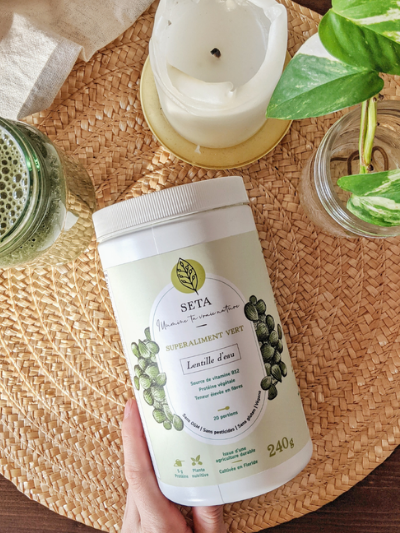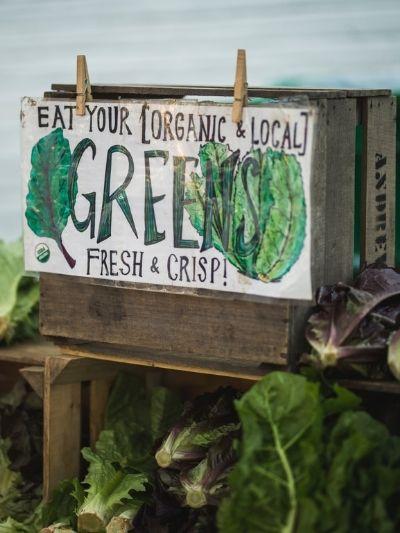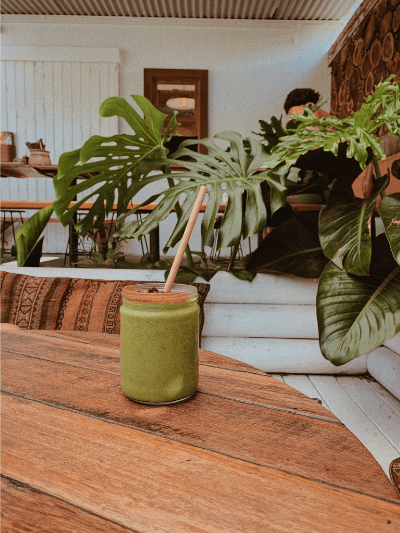For years now, plant-based proteins have been widely advocated by healthy eating enthusiasts and environmentalists alike. They’re starting to get more shelf space in our kitchen, and most consumers are familiar with red and green lentils (legumes). But can the same be said for water lentils? Despite what one might think, water Lentil is not a legume, but is part of the aquatic plant family. As you might imagine, it grows in water! Also known as Lemna, or duckweed, it is now consumed for its sheer nutrient density. This is the protein of the future.
What is Water lentil?
Water Lentil is a flowering aquatic plant that grows on the surface of freshwater. It grows naturally in many places around the world, mainly in ponds and quiet streams. Consumed in Southeast Asia and Africa for generations, it is only recently that Western researchers became interested in this plant. Always in search of nutritious products and eco-friendly proteins, the North American food industry is now looking into water lentil production techniques.
In addition to its value environmentally, this plant stands out for its fiber, protein, and rich nutrient content. One of the more particular characteristics of aquatic plants is their great potential to bioaccumulate the elements present in their environment: water, in this context. For this reason, the same conditions present in controlled fish farms make it possible to optimize the nutritional value of water lentils.
Why so much hype around water lentil: Here are their TOP 5 KEY FEATURES
1. Fibre: Rising star of the day
Fiber is still being valued by nutritional experts—with reason! We've been talking about protein for a few years now, but I have a feeling that fibre will soon be the new star at the table! Why is that? Because the more we learn about the intestinal microbiome, the more we understand the extent of its power on human health! Intricately connected to our many systems (digestive, immune, neurological, endocrine, etc.), the intestinal microbiome represents the sum of the microorganisms living in our digestive tract.
In recent years, digestive disorders have been consistently on the rise. The more we consume highly processed foods, the more fragile the digestive balance becomes. How can we avoid this? By prioritizing natural foods and more fibre in our diet. Very few North Americans consume enough.
A single scoop of Water Lentil powder can meet nearly 20% of your daily fibre needs! It’s that easy.
2. Significant protein proportions
Water Lentil is nearly 45% of protein. Interestingly, this protein is composed of all 9 essential amino acids, which is very rare for a plant-based protein. In fact, soy was once the only popularized plant-based protein that stood out for its complete amino acid profile. Think again, because now water lentil offers a new plant protein alternative.
But while we’re on the subject, what does it take for a protein to be valued as high-quality? The short answer is, the quality of a protein is determined by its digestibility and its protein support synthesis. Let's dive a little deeper into this subject.
3. A plant-based protein of exceptional quality
Complete proteins are often the most efficient at maintaining optimal protein synthesis. Water lentil's amino acid proportions are significant. It contains a high level of BCAAs, amino acids prized for the role they play in building muscle.
Moreover, the digestibility of proteins is also very important to consider. Calculated in a laboratory, analyses of the molecules allow scientists to give a score ranging from 0 to 100%, the scores closest to 100 being the most efficient. Digestibility of meat is often optimal, which is unfortunately not always the case with vegan proteins. Once again, Water Lentil stands out with a digestibility score of 91%.
4. Popular vitamins and minerals
Are vitamin supplements necessary for a person to be healthy? Not always! However, certain nutrients require special attention. Among them: iron, calcium, magnesium, and vitamin B12. The good news is that all these nutrients are present in significant quantities in water lentil! One scoop gives you:
-24% of your iron requirements
-13% of your calcium needs
-10% of your B12 requirements
-10% of your magnesium requirements
5. Plant protein for a sustainable future
Beyond the outstanding nutritional value of plant protein, we need to prioritize sustainable agriculture and food production in order to lessen the environmental impact for future generations. Harvested from an aquafarm, the ecological footprint associated with the aquaculture of Water Lentil is quite small. Indeed, one effective technique used by the farm is recycling and reusing water for future production.

In conclusion, now that you know more about water lentil, I bet you're even more curious about how to incorporate it into your diet. Sold in powder form, Water Lentil is a great addition to many of your favorite recipes.
-Smoothies, smoothies bowl orshakes
-Muffins, pancakes and cookies
-Soups and stews
-Overnight oats
Bon Appetit, and stay healthy!
Vanessa Daigle, Nutritionist
To learn more about how to incorporate water lentil into your diet, here are some delicious recipes to try:
-Bounty style Snack Bars
-Pear, banana & Water Lentil smoothie
-Lime & coconut energy balls






Comments (0)
There are no comments for this article. Be the first one to leave a message!